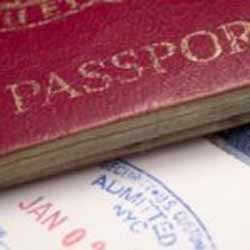Can International Students Get Internships?
An internship in the United States is a fantastic way to make a resume stand out for any foreign student who is lucky enough to land one.
Unfortunately, the United States government tightly regulates the employment (and internships) of foreign nationals. There are plenty of opportunities, but lots of paperwork must be completed and many hoops must be jumped through. If you want to intern in the US, plan ahead, be patient, and stay determined. It takes a bit of effort, but it’s totally possible to land a cool internship.

There are over half a million international students currently studying in the US. According to InternationalStudent.com, 4% of students in higher education in the US are foreign nationals. CIEE predicts that this number is growing by 10% each year. These full time students are landing internships all of the time – so can you.
How to Prepare for Internships
When traveling to a new country to work, you will experience a bit of culture shock – new ways of communication, business trends, people, expressions, places, money, costs, and life. And for many, it will all be in a second (or third) language.
Be open to a new way of life. It may not be what you expected or what you saw on MTV. Remember, if you don’t understand something ask questions. Embrace the newness and take away as much as you possibly can.
Your internship experience will help you build a network of contacts, make your resume more impressive, and help you land future jobs.
Companies Are Recruiting Interns
Companies always want to hire the most talented students, regardless of where they are from. Remember that internships are like a long-term job interview. If you do a good job, you might get hired.
Internships can be paid or unpaid. Unpaid internships do not require as much paperwork as paid internships. Under US law, this means you have to be eligible to work in the US. This is determined by the type of visa you have.
Work Visa Options
Visas are the keys that open and close doors for you as a foreign national seeking a legal internship. Either a F-1 or J-1 visa is required.
You can use the new United States Department of State Visa Wizard to see what types of visas you qualify for.
F-1 visas are the most common visas for internships. All full-time students are on F-1 visas. It is a non-immigrant student visa. Embassies and consulates outside of the US issue these visas.
To apply for an F-1 visa, you must first apply to school and receive your I-20 – a Student and Exchange Visitor Program document. You must show that you are able to support yourself while in the US and that you are enrolled in school. After a full school year (typically 9 months), and enrollment in at least 6 credit hours, F-1 visas holders are eligible for practical training, aka internships.
It is your job to find an internship. Be sure to let companies know that you are an international student. Next, complete a CPT form and update your I-20.
Internships fall under the category of Curricular Practical Training (CPT), which allows students to work 20 hours per week during semesters and 40 hours per week during summer for a time frame of 12 to 14 months before returning to full-time education. This work is paid, off-campus, academic work that is allowed during the educational process.
You can learn more about F-1 visas here.
J-1 visas are sponsored visas designed for students and trainees. To obtain a J-1 visa, complete form IAP-66 and then apply for the J-1. J-1 visa holders must be currently enrolled as students or have graduated within 12 months from a higher education setting outside of the United States.
There are two types of J-1 visas – Intern and Trainee.
Intern visas allow students to intern for 12 months. This visa is designed to help students transfer skills from school to the workplace. The trainee visa allows for 18 months, but visa holders must have 5 years of work experience outside of the US.
J-1 visa holders cannot do casual work and no more than 20% of their job can be clerical work. Specific internship dates must be clearly stated and you must leave the US within 30 days of completing the internship. After leaving, you may not return to the US for 2 years.
You can learn more about J-1 visas here.
Both F-1 and J-1 visas require applications fees. When working with the government, be sure to follow all visas regulations exactly. For the most recent and up-to-date information, you must consult the Department of State’s website. Also speak with your international student counselor at your university.
Planning Time Frame
If you are seeking an internship or a visa you need to plan well in advance. First, you must have a passport. This can take a month or longer to apply and receive. Next, visas typically will not be approved until 120 days before your start date and you will only be allowed into the country 30 days or less prior to the start date.
This security stipulation is courtesy of Homeland Security and can make it challenging to manage your travel plans.
Resources for International Students in the US
The Internet has excellent resources for students applying for internships from abroad. Utilize them and ask questions. Plan ahead and double check and triple proofread all of your applications to make sure you have not missed anything.
Every university has an international student counselor who is rich with knowledge about international student internships. Many companies deal with visas regularly and can also answer questions. Take advantage of these resources. They can help make the application process go smoothly.
Success!
After all the paperwork, the travel, and the passport stamps, you are ready. Make the most of it and enjoy.
